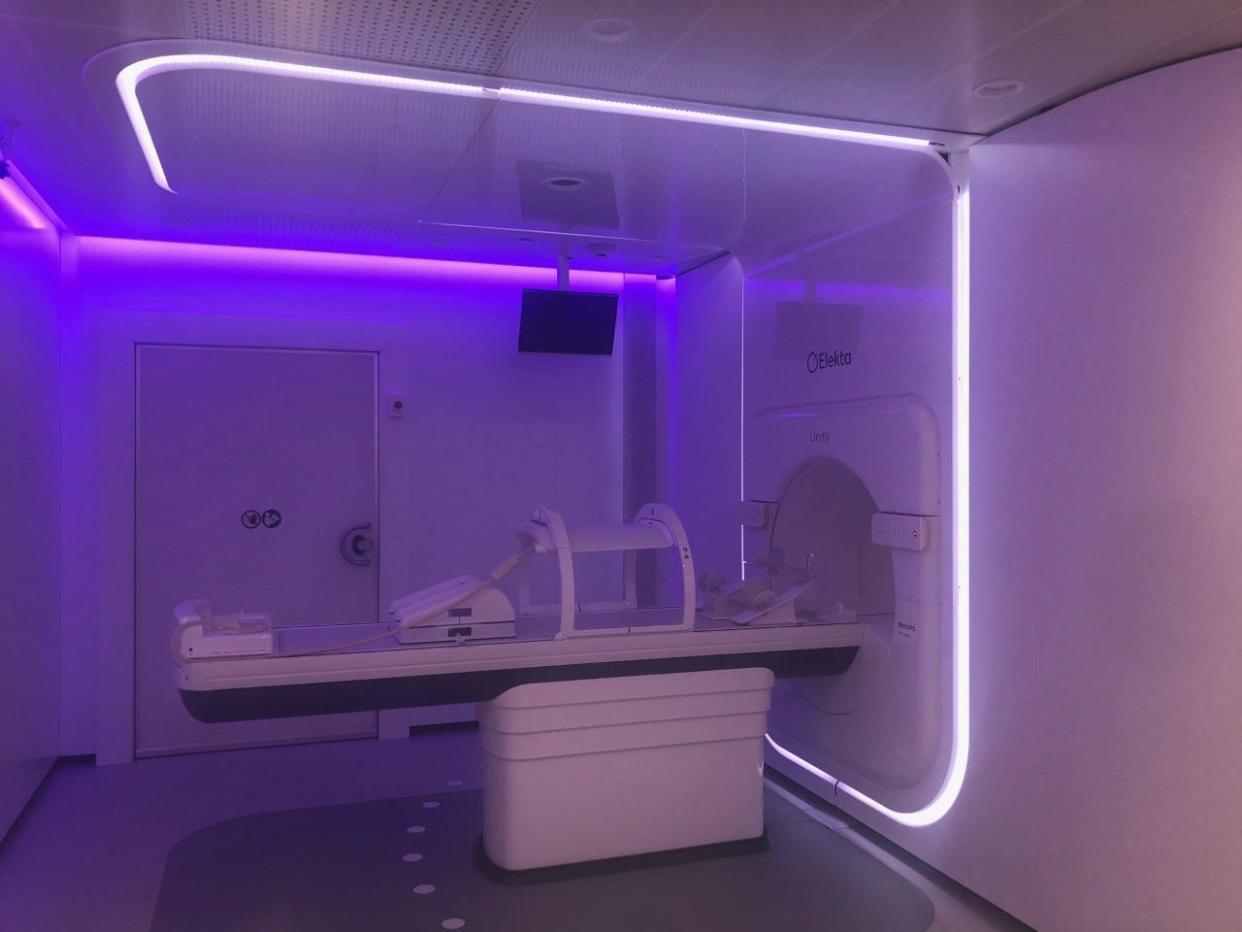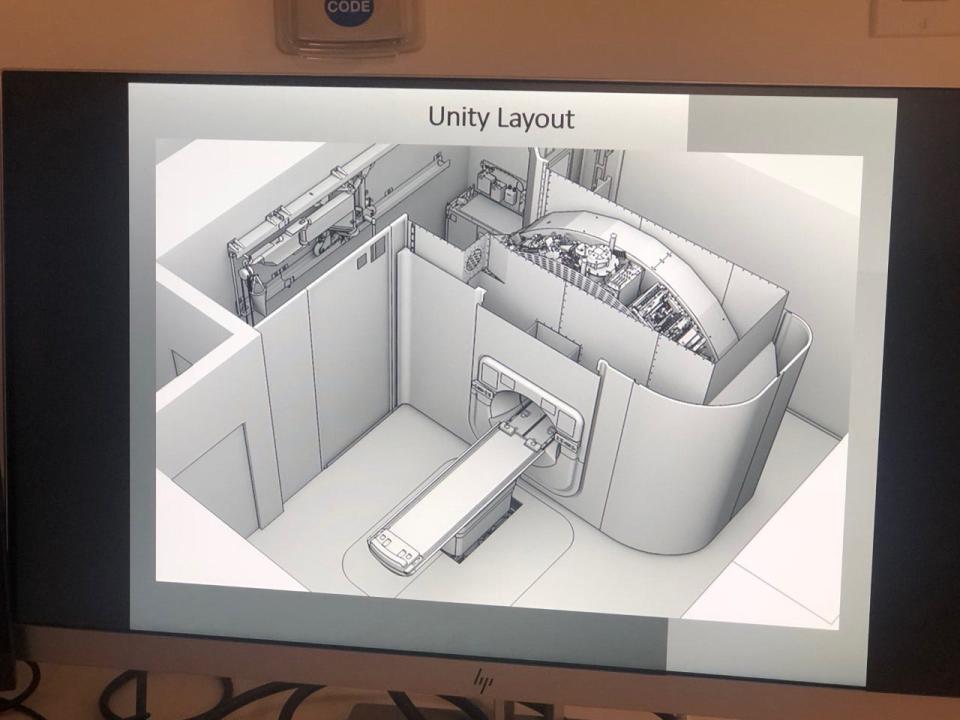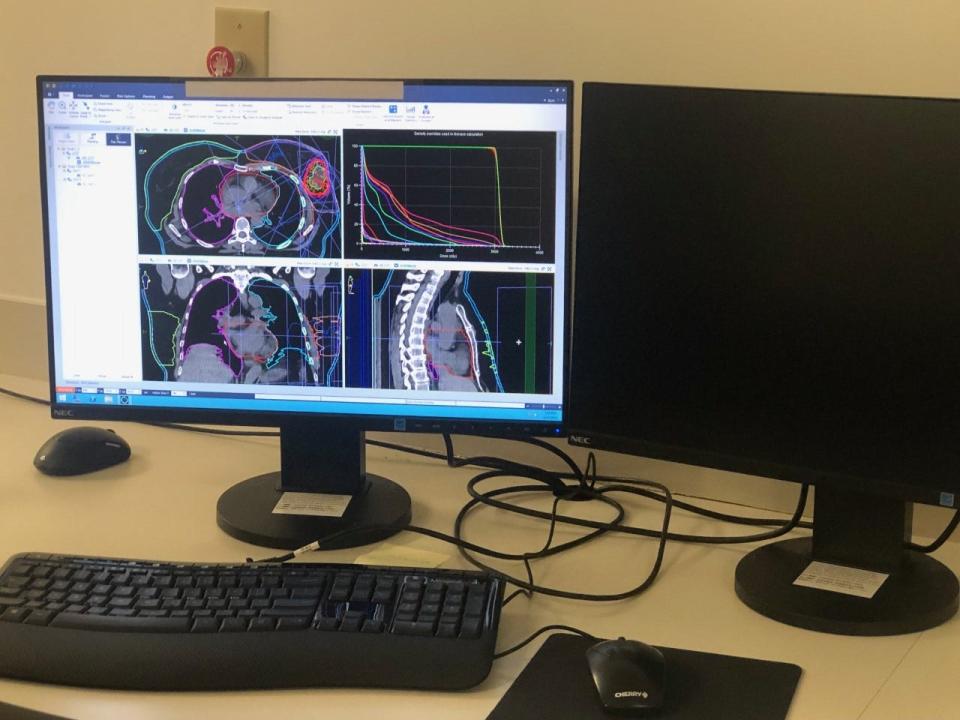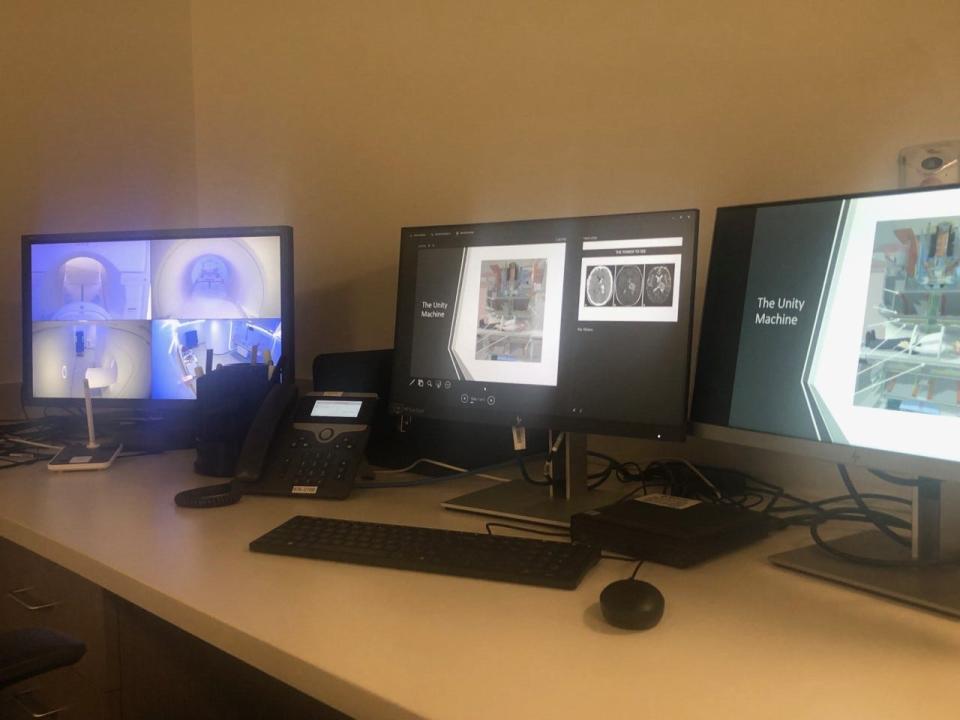‘Transform the way we treat cancer’: Methodist among first to get new cancer treatment

Memphis is now home to some of the newest, most cutting-edge cancer treatment technology available.
The Elekta Unity system, touted for its precision treatment abilities, is now in use at the Methodist Cancer Institute at Methodist University Hospital. Methodist is one of only eight healthcare systems in the country currently offering the treatment.
Dr. Lloyd Geddes, medical director of the Methodist Cancer Institute, said radiation therapy was the most common cancer treatment, with 50% of all cancer patients receiving it at some point. By making radiation more effective and specialized to each patient, it can change the game for cancer outcomes.
“This is cutting-edge, revolutionary technology,” he said. “It is going to transform the way that we treat cancer patients.”
Medical breakthroughs:This brain surgery is a last chance, and there’s only one place in Memphis to get it
Healthcare news:How Methodist Transplant Institute's new leader plans to move center forward
Methodist started to install the system in 2020, said Nate Thorne, director of medical physics at the institute. The pandemic slowed down the process but last year, the team was able to use it on a patient for the first time, with a handful more patients treated since, he said.
The Elekta Unity system ― developed by Swedish company Elekta ― was officially dedicated on Tuesday and will soon be in use more frequently. While the technology is still in its relatively early stages, Thorne said he believes it will transform cancer treatment in years to come, especially for forms like pancreatic cancer that are difficult to treat.

The treatment pairs magnetic resonance imaging with the linear accelerator that delivers radiation therapy. It allows targeted radiation to be directed at cancer cells while reducing the exposure of surrounding healthy cells to the radiation.
Dr. Lillian Rinker, medical director of Radiation Oncology for the Methodist Cancer Institute, said an added benefit is that patients might also experience fewer of the side effects related to traditional radiation therapy. Those can include fatigue, hair loss and skin issues, nausea, headache or fertility loss depending on the area treated, according to the National Cancer Institute.
She said some areas, like the brain and the liver, have been difficult for radiation oncologists to treat because it’s very hard to see with the imagining previously in use, like CT scans.
“MRI just gives us such incredible imaging and we have the ability to actually see the tumor in a way that we just can't see it with anything else,” she said. “We can really focus in on it and give high doses because we know exactly where it is. And we know exactly where the healthy organs nearby are so we can tiptoe lightly around.”
‘I could not be more proud’
Among its other assets, the Elekta Unity system gives a treatment team more flexibility to tweak the treatment plan, medical physicist Andy Wiles said. Before, healthcare workers would have to rely on previous scans taken of patients. But, inside the body, things can shift around frequently for many different reasons.

“This gives you the ability to adapt your plan every day,” he added.
It can also be adjusted minute-by-minute during treatment in response to a patient moving or how a tumor responds. During treatment, a team of specialists on the other side of a wall from the patient watches them and their MRI scans on a bank of monitors as the treatment progresses.
Geddes said it also gives patients and their treatment team the ability to know very soon after a radiation session ends, what the next treatment steps are without having to take additional scans.
Healthcare:'A public health crisis': What state's rejection of HIV funds could mean for Shelby County
More:Medical technology company PBC BioMed opens first US office in Downtown Memphis
All of these advantages, Geddes said, move treatment in a more personalized direction, tailoring care as closely to every patient and their cancer as possible.
“Ten to 20 years ago we had, on the medical oncology side, we had maybe seven to 10 drugs that we use interchangeably. Now that we found out so much more about the human genome and human biology, we're actually able to precisely target someone's individual cancer and create treatments specifically for them and that's what we call precision medicine,” he said. “With this technology, radiation oncology is on the forefront of being able to do some of those same things.”

Dr. Kathleen Forbes, executive vice president for the academic group at Methodist, said that in a recent community health needs assessment, which included polling of Mid-South residents, people said cancer care was one of the top two healthcare-related things they cared about.
“They worry about it. And so we have a responsibility to step up and answer that call,” she said.
Having the most advanced technology also allows the hospital to attract and retain some of the best healthcare workers in the world, Geddes said, a challenge for all healthcare systems amid a massive shortage of healthcare workers.
This technology, Rinker said, puts the Methodist Cancer Institute’s abilities on par with places like MD Anderson Cancer Center in Houston.
“It puts us with the elite medical centers in the country,” she said. “I could not be more proud.”
Corinne S Kennedy covers economic development and healthcare for The Commercial Appeal. She can be reached via email at Corinne.Kennedy@CommercialAppeal.com
This article originally appeared on Memphis Commercial Appeal: Memphis hospital among first to use new cancer radiation treatment

